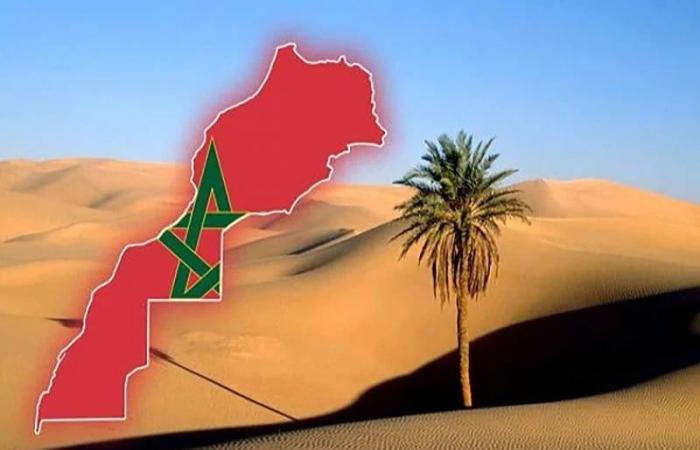In a context of increased diplomatic rivalries, resolution 2756 adopted yesterday by the United Nations Security Council represents a strategic milestone for Morocco, strengthening its achievements in terms of sovereignty in the Sahara.
Mohamed Talib, expert in Sahara affairs and member of the Royal Advisory Council for Saharan Affairs (CORCAS), sees in this text clear international support for the Moroccan autonomy proposal. “ This resolution confirms Morocco’s constructive and credible approach and the Kingdom’s efforts for a lasting and mutually acceptable political solution. underlines Talib.
The resolution reiterates, in fact, the attention paid by the Security Council to the autonomy proposal formulated by Morocco in 2007, a solution described as ” serious and credible » which today stands out as the most viable option to end the artificial conflict around the Sahara. For Talib, this text marks a significant recognition of the international community towards Moroccan efforts, a valuable recognition in a context in which Algeria and the Polisario remain frozen in outdated postures.
International recognition of the autonomy solution
The Council thus invites the parties, including Morocco, the Polisario, Algeria and Mauritania, to invest more in a compromise process. Talib interprets this message as a signal addressed to those who continue to cling to inappropriate approaches, notably the Polisario and its favorite ally. “ In a world in search of stability and peace, this conflict deserves a pragmatic and modern solution, and not the reek of obsolete strategies. comments Talib, adding that “ the permanent representative of Algeria proposes to return to the pre-2007 resolutions ratified by the Moroccan autonomy proposal. The members of the SC opposed this amendment, considered introductory and a return to blockage.”
Despite its efforts to change the content of the resolution, Algeria failed to integrate its amendments relating to human rights, a maneuver that it had already attempted during previous discussions. “ This diversionary approach shows a desire to distract the Council from what is essential: the search for a realistic and lasting political compromise. says Talib. This new failure reflects a growing isolation of Algiers and its supporters, in contrast to the consensus emerging around the Moroccan initiative.
The resolution makes no mention of a referendum or the recent partition proposal raised by UN personal envoy Staffan de Mistura. “ This sends a strong message: these options are a thing of the past,” underlines Talib, who sees this as confirmation that Morocco is moving calmly towards a lasting settlement of the Sahara question. This firm position of the Security Council invites the parties to move beyond rigid postures and embrace a dynamic of dialogue. The Security Council welcomed the recent momentum and urged that we build around the spirit of realism and fait accompli”.
The resolution also recognizes the importance of stability in the Sahel and Maghreb region, a priority for Morocco which, through the development of its southern provinces, works to consolidate regional peace and prosperity. Mohamed Talib recalls the pioneering role of the Kingdom in improving living conditions in the Sahara, in particular through economic and social reforms and initiatives in favor of human rights. By welcoming the efforts of the National Human Rights Council in Dakhla and Laâyoune, the Security Council explicitly recognizes the Moroccan commitment to the protection of fundamental rights.
Furthermore, the resolution reaffirms the importance of cooperating with the Office of the United Nations High Commissioner for Refugees with a view to securing the rights of the Sahrawi populations, in particular those in the Tindouf camps. The Council once again calls for the registration of refugees, an essential step to ensure transparency in the management of humanitarian aid. “ Morocco has long called for transparency in the Tindouf camps, where opacity remains the rule. recalls Talib, adding that this point is crucial for a fair and equitable humanitarian approach.
Support from allies: a strengthened consensus around Morocco
France and other allies of Morocco, through their support for this resolution, strengthen the international consensus around the autonomy initiative. “ This explicit support from France, the United States and other influential members of the Council demonstrates a strategic alignment in favor of Morocco », observes Talib. For him, this support transforms the Sahara from a subject of discord into a vector of regional stability and socio-economic development.
The isolation of Algeria, unable to convince the Council with its amendments, testifies to the solidity of Moroccan diplomacy and its approach in favor of a stable and secure future for the Sahara. “ Morocco is part of a logic of peace and regional cooperation, while attempts to block and obstructive postures prove counterproductive », concludes Talib.
Ultimately, resolution 2756 represents a decisive step forward for Morocco. Mohamed Talib is delighted with this victory, which he sees as an international validation of the Moroccan approach: “ The world recognizes today that the only just and lasting solution is that of autonomy under Moroccan sovereignty. By continuing on this path, Morocco defends its territorial integrity and actively contributes to the stability and prosperity of the entire region.”
For Talib, this resolution embodies a diplomatic milestone which reinforces Morocco in its position, while inviting the other parties to join a dynamic of peace and development. “The international community now has all the keys in hand to enact this autonomy plan as a definitive, pragmatic and modern solution,” he concludes, recalling that the Moroccan initiative is no longer an isolated proposal, but a shared vision. for a serene and prosperous future.






